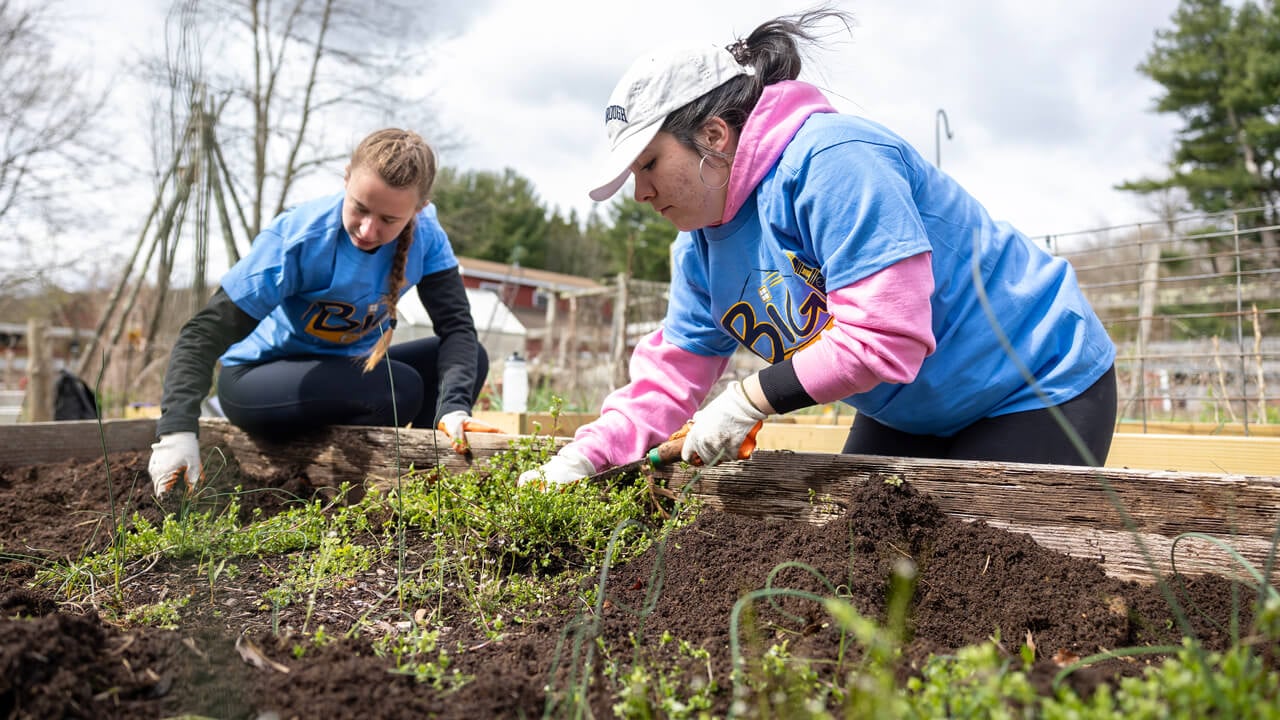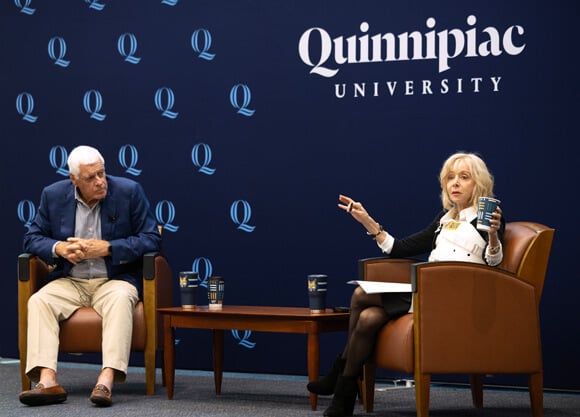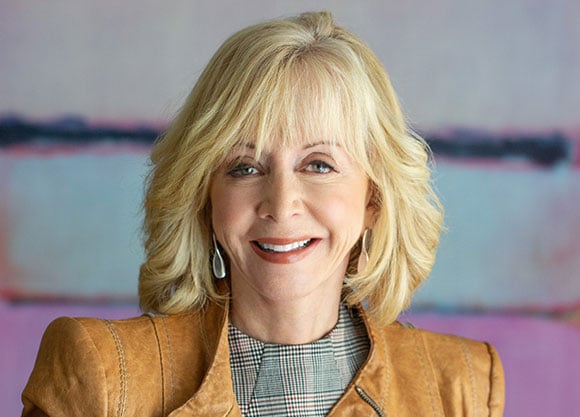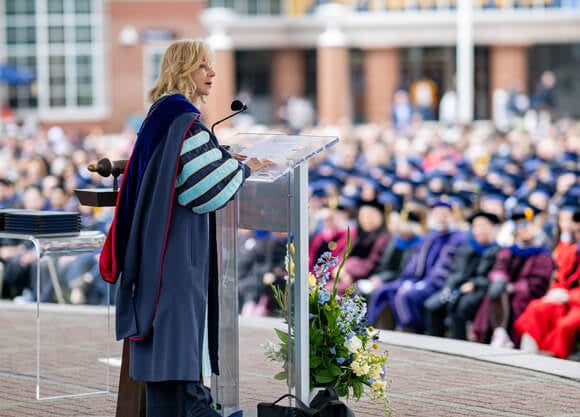

About Quinnipiac
President Judy D. Olian

About Quinnipiac
President Judy D. Olian
Judy D. Olian, PhD, became the 9th president of Quinnipiac University in 2018. She is distinguished in leading higher education institutions to advance academic excellence, innovative programming, alumni engagement, global outreach and inclusive environments.
Strategic and innovative leadership
Judy D. Olian, PhD, has served as president of Quinnipiac University since July 2018, an institution with approximately 9,000 undergraduate and graduate students, eight professional schools, a College of Arts and Sciences and 21 Division I athletic teams. The university is in the midst of cutting-edge program expansion for both traditional and adult learners, attraction of diverse communities, innovative corporate partnerships, and an ambitious set of capital projects. Among its distinctions is the Quinnipiac University Poll, deep and broad excellence across the health sciences, and graduates who achieve among the very best employment outcomes in the country.
Before joining Quinnipiac, she served as dean of UCLA Anderson School of Management and John E. Anderson Chair in Management for 12.5 years. Under her leadership, UCLA Anderson hired a record number of faculty, expanded its prestigious Board of Visitors, and raised over $450 million for students and faculty support, innovative programming, and capital improvements.
Prior to that, she was dean and professor of management at the Smeal College of Business Administration at Pennsylvania State University, and professor and senior associate dean at the Smith School of Business at the University of Maryland. Olian served also as the chairman of the Association to Advance Collegiate Schools of Business (AACSB International), the premier business accrediting and management thought leadership organization in the world.
Widely published in journals on human resource management, top management team composition, and the business alignment of management systems, Olian wrote a weekly syndicated newspaper column and hosted a monthly television show on current topics in business. She is a sought‐after speaker and has consulted for major corporations. Olian serves on, or has been a member of, various advisory boards including the U.S. Studies Centre at the University of Sydney, Peking University Business School’s International Advisory Board, the Connecticut Workforce Council, AdvanceCT, the Business-Higher Education Forum, New Haven Promise, Hartford HealthCare, Catalyst, a leading global think tank for women in business and the Knight Commission on Inter-Collegiate Athletics that advocates for the well-being and success of college athletes. She was also Chair of the Loeb Awards for Business Journalism.
She serves on the corporate boards of Ares Management, L.P., a publicly traded global alternative asset management firm, United Therapeutics, a publicly traded advanced biotech company, and Mattel, Inc., a publicly traded multinational toy manufacturing and entertainment company.
Born and raised in Australia, Olian earned her B.S. in psychology from the Hebrew University, Jerusalem and her M.S. and Ph.D. in industrial relations from the University of Wisconsin, Madison.
Connect with President Judy Olian

President Olian enjoys engaging with students, alumni, faculty, staff and other members of the Quinnipiac community.
She is deeply committed to Quinnipiac’s mission to nurture our students into becoming enlightened global citizens prepared for the careers of the 21st century.
She encourages students to actively participate in this process and to help draft Quinnipiac’s legacy.




